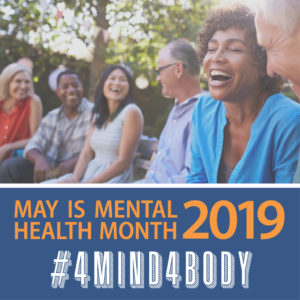
Psychological conditions live beneath the surface, and they are challenging to recognize for the untrained eye. Many doctors lack training in the subject matter, which places patients at risk. Undiagnosed and untreated mental illness is one of the leading causes of substance use, self-harm, and premature death.
The field of medicine has long been the frontline for prevention and intervention. It is vital that doctors and nurses have the skills to spot behavioral health problems and are able to provide evidence-based guidance. If a patient presents to their primary care physician (PCP) for a routine check-up, it is an opportunity to screen for mental health conditions.
People struggling with psychiatric illness are often unwilling to discuss their symptoms. Many individuals have fears about what a diagnosis might lead to, including being treated differently by one’s peers. As a result, mental illnesses often do not receive proper care; over time, diseases like depression become progressively worse.
It is of critical importance that PCPs undergo training for identifying at-risk patients so they can refer them to mental health professionals. However, since many patients only see their physician once a year, intervention opportunities are sparse.
Pharmacists, on the other hand, have far more contact with the general population. Which means those working at pharmacies are in a unique position to take action if they see people exhibiting signs of mental illness and substance use issues.
Pharmacy Employees Receive Mental Health Training
Tens of millions of Americans walk into stores like Rite Aid, CVS, and Walgreens to fill their prescriptions each month. There are at least twelve opportunities, annually, to have an impact on men and women who may be struggling.
While it’s true that pharmacists do not go to medical school, they can be taught what to do when a customer appears to be struggling. With training, those working in American pharmacies can intervene and offer up support.
Last week, Walgreens announced that it would provide Mental Health First Aid training for many of its pharmacists and team members. Working in conjunction with the National Council for Behavioral Health (National Council) and the American Pharmacists Association (APhA), the company’s employees are learning:
- Mental health literacy.
- Risk factors and warning signs for mental health and addiction.
- Strategies for helping people in crisis and non-crisis situations
The eight-hour Mental Health First Aid course teaches participants how to open up a dialogue with persons who require assistance. More than 1.5 million Americans have undergone training to date, according to the National Council. Walgreens plans to direct over 300 of its team members to Mental Health First Aid courses.
With the growing need for services and resources to help those living with mental health conditions, as well as substance use and addiction, we can play an important role by giving our pharmacists and certain team members the training to help those in crisis,” said Alex Gourlay, co-chief operating officer, Walgreens Boots Alliance, Inc.
In 2016, the company joined forces with Mental Health America to provide customers with behavioral health resources and information on accessing care. Moreover, the pharmacy giant offers prescription-free naloxone, an overdose reversal drug that saves thousands of lives each year.
Gender-specific Mental Health Treatment
Help is available for all who struggle with mental health conditions, such as anxiety, depression, and post-traumatic stress disorders. Hopefully, Walgreens’ initiative will result in more people seeking treatment and recovery services.
PACE Recovery Center’s doctorate and masters-level clinicians can help you or your male loved one acquire the tools to recover. Our team provides clients instruction in managing their symptoms of mental illness so that they may thrive in recovery. We believe that it’s essential that men learn how to balance mental health needs with educational, vocational, and familial responsibilities.
We understand that each client has unique needs. Our clinicians create individualized treatment plans that cater to our clients’ histories and environmental challenges.
Please contact our dynamic, evidence-based extended care center at your earliest convenience to discuss treatment options. You can call 800.526.1851, any time of the day, to speak with an admission counselor and learn more about our specialty tracks.


